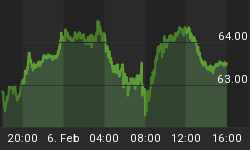U.S. surveys suggest that U.S. consumer confidence is up, U.S. retail sales are reported to have been up year/year in both August and September, and 'buyer traffic' is said to be at its busiest since April, 2006.
An article Wednesday asks the right question: "Where Are Consumers Getting Income to Spend?"
In 2005 I spent time trying to figure out where the consumer dollars were coming from that were then driving the U.S. economic growth. I concluded at that time (i.e. 2005) that U.S. consumers were deriving a significant percentage of their spending power by re-financing their houses as U.S. house prices escalated - and using the proceeds to buy things that were other than home-improvements (although there was of course some of that too). This in a tax-system where mortgage interest is deductible for personal tax purposes, but interest on a loan to buy a refrigerator (as but one example of a 'durable good') is not. That 'borrowing against one's house' process finally caught up with itself in 2008.
And so the question now is, where are U.S. consumers getting the money to spend as they work to maintain their lifestyles, where the jobs that are being created tend to be lower paying than the jobs they are replacing?
The referenced article suggests that the growth in the U.S. economy may be higher than the reported statistics are showing, and that this may account for current U.S. consumer retail spending and confidence. While not impossible, if that proves to be true it brings into question not just U.S. reported growth statistics, but all U.S. reported statistics, as why would one assume only growth statistics are wrong if they statistics proved to be.
On the assumption that U.S. Banks have learned their 'badly backed mortgage loans' lesson, and given that U.S. house prices generally have dropped significantly on average from what they were in 2007, it seems unlikely U.S. consumer's houses are the source of their available spending funds.
You might want to read The middle class isn't losing more jobs than usual. But it is losing more money. This article doesn't shed light on the 'right question'. However, it does force the following question: How is it that there is a dichotomy between U.S. consumer confidence and apparent spending, and the old adage 'you can't get blood from a stone'? One can only wonder.
While I believe the question 'From where is the U.S. consumer currently getting its spending power?' is the 'right one', that I don't in October 2012 have a ready answer to that question as I did in 2005 troubles me.
Topical References: Where Are Consumers Getting Income to Spend?, from Real Time Economics, The Wall Street Journal, Kathleen Madigan, October 16, 2012 - reading time 3 minutes. Also see The middle class isn't losing more jobs than usual. But it is losing more money, from Wonkblog, The Washington Post, Bylan Matthews, October 16, 2012 - reading time 3 minutes.















